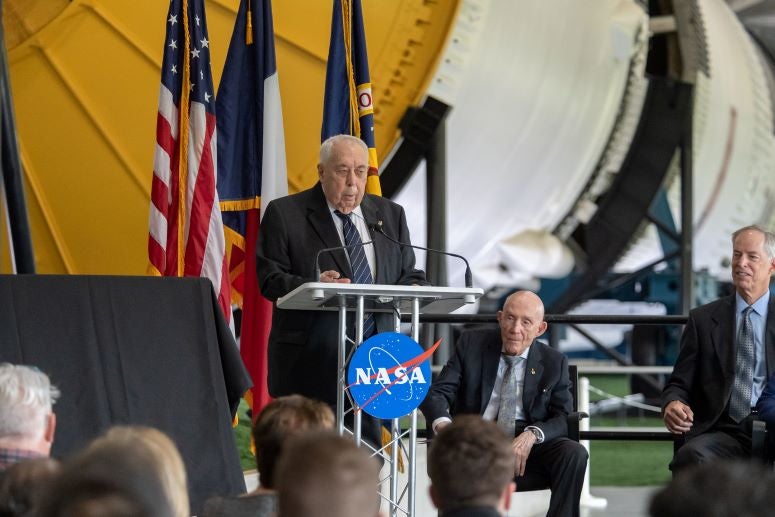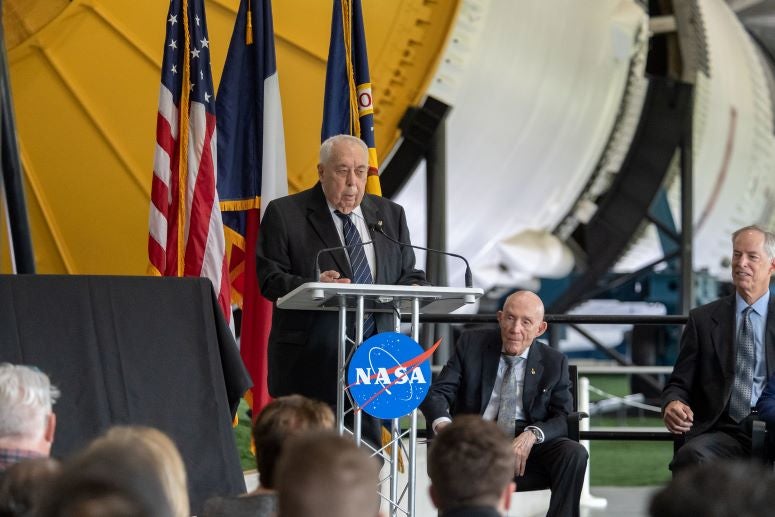
NASA’s Johnson Space Center has renamed its Rocket Park after Apollo-era engineer and former center director George W.S. Abbey, a senior fellow in space policy at Rice’s Baker Institute for Public Policy. Notably, the park displays one of only three remaining Saturn V rockets that was used to launch the first astronauts to the moon more than 50 years ago.
The park's dedication, which was made formal during a ceremony held Dec. 10, highlights the many contributions Abbey made to the space program and to the local JSC community.
Abbey’s storied NASA career ranged from the Apollo Program — Abbey and the Mission Operations Team earned the Presidential Medal of Freedom, the highest civilian honor in the U.S., for bringing home the Apollo 13 astronauts — to the space shuttle to the International Space Station.
“To have them name something like the Rocket Park after me, it’s a great honor,” Abbey, 89, told the Houston Chronicle.
Accessible to the public via the nearby Space Center Houston and its daily tram tours of Johnson Space Center, the George W.S. Abbey Rocket Park showcases many of the historic missions and vehicles that its namesake helped succeed.
“He touched so many different people by helping with their careers,” said JSC Director Vanessa Wyche. “But mostly people are coming to honor his legacy and his role in the success of human exploration. He is a legend at NASA.”
Described by NASA as one of its most influential leaders through the end of the 20th century, Abbey's career with the space agency spanned five decades. He led the Johnson Space Center from 1996 until February 2001, and he left NASA in 2003 to focus on space policy at the Baker Institute.
(Photo courtesy of NASA’s Johnson Space Center)

